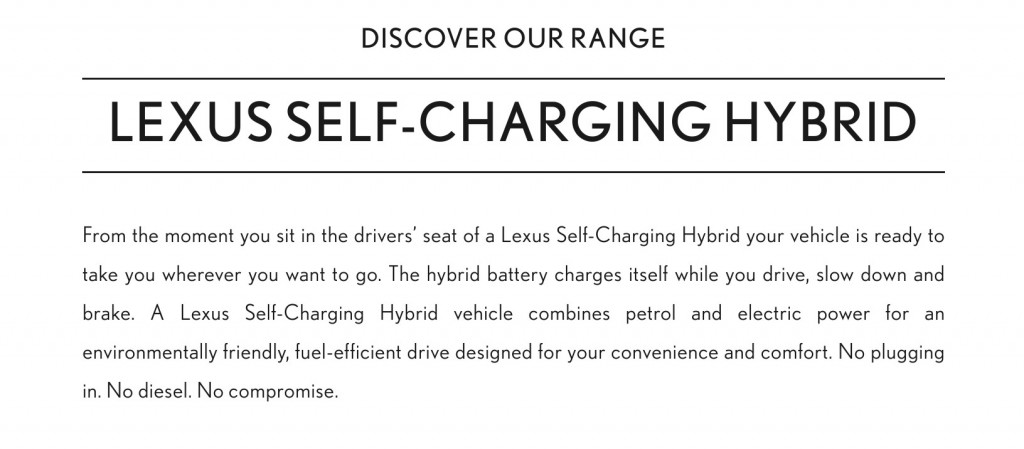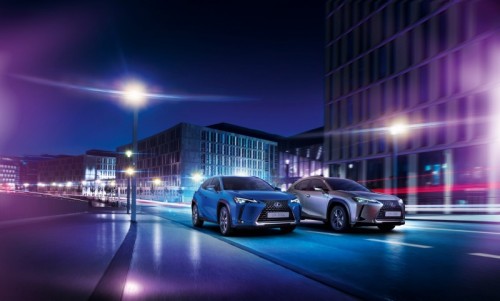The phrase “self-charging” has been quite the lightning rod among electric-vehicle enthusiasts—especially in Norway.
Toyota’s Lexus luxury brand has continued—in Norway, and in the UK and elsewhere in Europe—to run an ad campaign describing its hybrids as “self-charging.”
In this era of wireless charging for our personal devices and on its way to more cars themselves (in BMW plug-in hybrids, for instance), some of Lexus’ explanations about being charged when you’re ready and never needing to be plugged in are potentially confusing at the least.

What is a Lexus self-charging hybrid?
Despite wide-ranging pushback on social media—some of it suggesting, tongue-in-cheek, that the models must employ some sort of perpetual motion machine—Lexus has continued the campaign with its recent NX and UX hybrids.
Last month, Norway’s national Consumer Authority has stepped in about the campaign and presentation—finding that it is misleading to declare that the cars “produce their own electricity.”
The government agency, in a statement, found that [translated] it’s misleading to say that the electrical power in the hybrid battery is free, since the electricity produced by the car has gasoline consumption as a necessary condition. It issued specific advertising to be removed by December 20, and while it appears that mentions of free charging have been purged, as of January 25 Lexus is still advertising its hybrids on its Norwegian site as self-charging.
One complaint cited by the agency, from an owner, said that they paid dearly for the “free” electricity” through the gasoline bill. As of January 20, the cost of a gallon of gas in Norway is about $7.20.

Lexus UX hybrid - UK consumer site - January 2020
Norway is a nation of discerning electrified-vehicle shoppers. It has the highest per-capita EV adoption in the world and, until recently, in sheer sales numbers Norway bought the largest number of EVs of any nation in the EU (Germany passed it in 2019).
Lexus tried a similar strategy in the U.S. back in 2014, when it advertised the CT 200h hybrid hatchback (now discontinued in the U.S.) with the suggestion that electric vehicles would “hold you back.” One spot was layered with errors, showing a Nissan Leaf fast-charging and suggesting it was “reserved for someone with four hours to kill.”
Later, it introduced an “always charged” slogan for its hybrids in the U.S. in 2016.
Of course a hybrid system doesn’t combine petrol (gasoline) and electric sources. It uses electric components to make a gasoline vehicle much more efficient. In Europe and the UK, the Toyota brand uses more straightforward descriptions on its consumer site.

Lexus UX300e Preview
Now that the first electric vehicle from Lexus, the UX300e, is on the way to Europe this summer, it’s puzzling to see why such advertising continues. Should (non-plug-in) hybrids ever be pitched as being electric vehicles part of the time? Is anything but saying they’re especially efficient gasoline vehicles truth in advertising? Watch one such Lexus Europe spot, and let us know what you think in your comments below.
